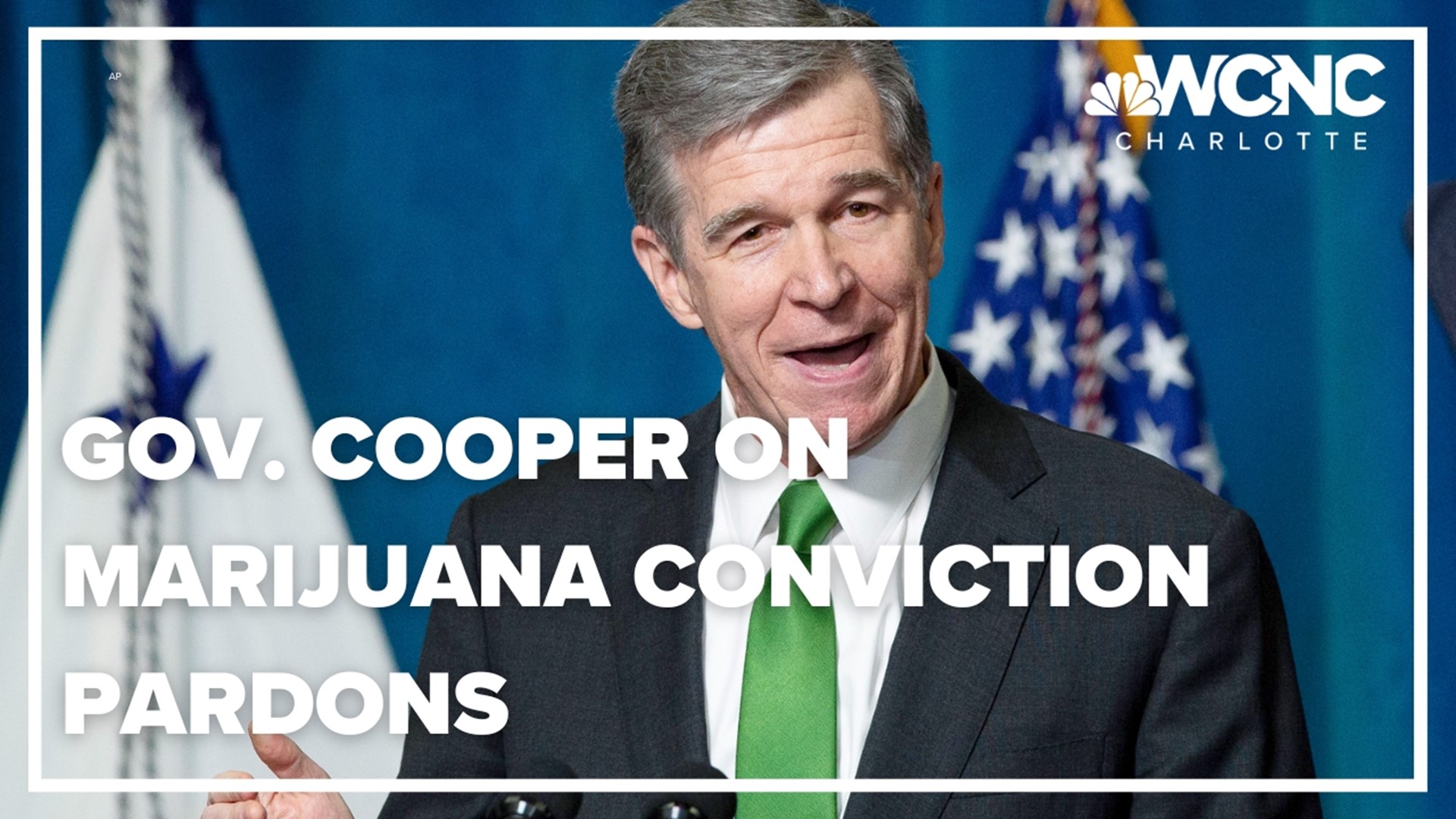CHARLOTTE, N.C. — North Carolina's Roy Cooper pledged his support for President Biden's pardoning of thousands of people convicted of federal marijuana charges.
Despite this support, at the North Carolina Task Force for Racial Equity in Criminal Justice meeting, he stopped short of promising statewide pardons as Biden urged.
While Biden’s move impacts thousands of people it represents a small number compared to the number of people convicted for simple possession under state laws.
"North Carolina should take steps to end this stigma," Cooper said. "I've also asked our lawyers to examine North Carolina law regarding simple possession of marijuana convictions and pardons to determine if there is action we can and should take."
Cooper said the task force, which he appointed by executive action in 2020, previously recommended the General Assembly to make this move but failed in the last session.
"Simple possession of a small amount of marijuana should not be a crime," Cooper said. "Law enforcement and the criminal justice system are under-resourced right now and they should be focused on stopping violent crime, drug trafficking, and other store outs to safe communities."
Being caught with marijuana in North Carolina can range from a $200 fine to years in prison depending on the amount and circumstance. Every year thousands of people in this state are arrested and convicted of the crime.
Governor Roy Cooper is responding to President Joe Biden’s call for governors to pardon simple marijuana possessions.
“While white and Black and brown people use marijuana and similar rates," President Biden said. "Black and brown people are arrested, prosecuted, and convicted at disproportionately higher rates.”
The harms of simple Marijuana convictions on someone’s record are clear. It can prevent people from jobs, education grants, and housing.
North Carolina Criminal justice reform advocates are applauding the move but say the details and structures of any pardons need to be clear.
"We need to make sure that people are not being subjected to fees and fines that come with being on probation and having these convictions," Dawn Blagrove, Emancipate NC Executive Director said.
Emancipate NC is a nonprofit fighting to dismantle the structural racism of mass incarceration, which included decriminalizing marijuana.
"There are people in prison right now, who may not be there because of a simple marijuana possession charge, but whose sentence may be longer sentence may have been extended, enhanced, based on prior convictions," Blagrove said.
Blagrove said local DAs and law enforcement also have a role to play.
"District Attorneys in North Carolina have the power to determine what charges move forward and what charges do not local law enforcement," Blagrove said. "That means police and sheriff have the discretion, an incredible amount of discretion, to simply not charge people and arrest people for low low-level marijuana."
A Charlotte-based lawyer, Gary Mauney, said this may be silently happening.
"When the President starts pardoning people for simple possession of marijuana, you can see that it's going down the list in terms of a priority for our prosecutors, and for our judicial system, Mauney said. "So it may be going on right now. You just don't hear it from prosecutors or the police."
In 2020, CMPD reduced the number of arrests it made for simple marijuana possessions. A WCNC investigation found that despite this Black people still overwhelmingly made up the vast majority of arrests.
"There is no way to talk about criminal justice without talking about the race issue," Blagrove said. "It is always a race issue."
In 2019, there were 3,422 charges and 1,909 convictions for possession of more than half an ounce and less than 1.5 ounces of marijuana.
The Task Force for Racial Equity in Criminal Justice said 70% of those convicted were nonwhite.
"There is no disproportionate use of marijuana, there's only a disproportionate criminalization of marijuana, and that happens to black and brown people," Blagrove said.
The ball is now in state leaders’ hands to make an impact on thousands of people's lives.
Contact Shamarria Morrison at smorrison@wcnc.com and follow her on Facebook, Twitter and Instagram.

